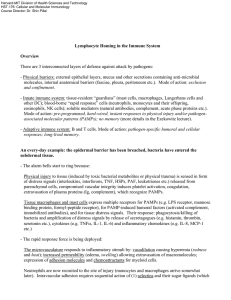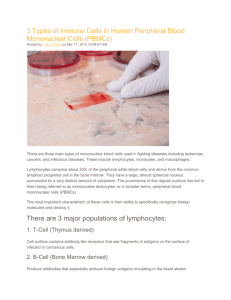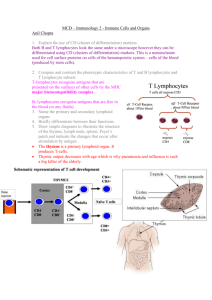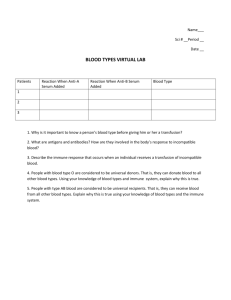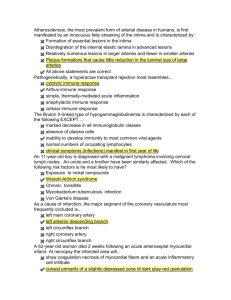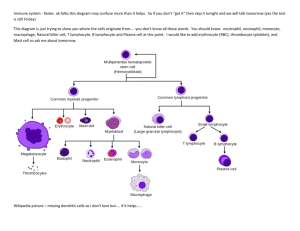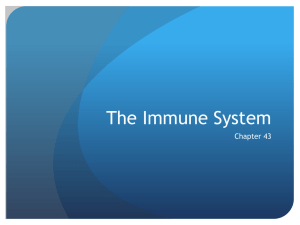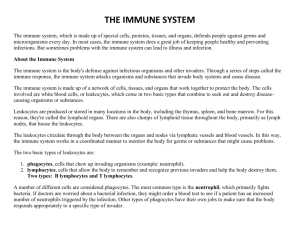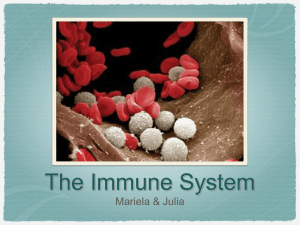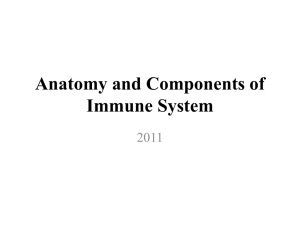The Immune System and Role of Glutathione
advertisement
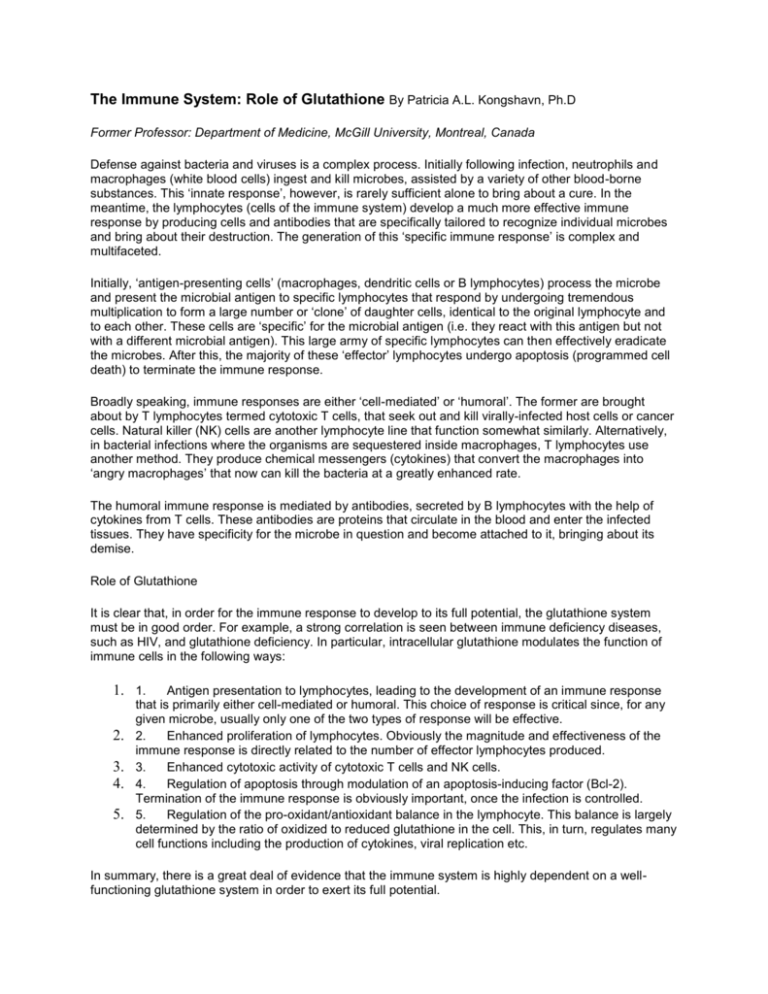
The Immune System: Role of Glutathione By Patricia A.L. Kongshavn, Ph.D Former Professor: Department of Medicine, McGill University, Montreal, Canada Defense against bacteria and viruses is a complex process. Initially following infection, neutrophils and macrophages (white blood cells) ingest and kill microbes, assisted by a variety of other blood-borne substances. This ‘innate response’, however, is rarely sufficient alone to bring about a cure. In the meantime, the lymphocytes (cells of the immune system) develop a much more effective immune response by producing cells and antibodies that are specifically tailored to recognize individual microbes and bring about their destruction. The generation of this ‘specific immune response’ is complex and multifaceted. Initially, ‘antigen-presenting cells’ (macrophages, dendritic cells or B lymphocytes) process the microbe and present the microbial antigen to specific lymphocytes that respond by undergoing tremendous multiplication to form a large number or ‘clone’ of daughter cells, identical to the original lymphocyte and to each other. These cells are ‘specific’ for the microbial antigen (i.e. they react with this antigen but not with a different microbial antigen). This large army of specific lymphocytes can then effectively eradicate the microbes. After this, the majority of these ‘effector’ lymphocytes undergo apoptosis (programmed cell death) to terminate the immune response. Broadly speaking, immune responses are either ‘cell-mediated’ or ‘humoral’. The former are brought about by T lymphocytes termed cytotoxic T cells, that seek out and kill virally-infected host cells or cancer cells. Natural killer (NK) cells are another lymphocyte line that function somewhat similarly. Alternatively, in bacterial infections where the organisms are sequestered inside macrophages, T lymphocytes use another method. They produce chemical messengers (cytokines) that convert the macrophages into ‘angry macrophages’ that now can kill the bacteria at a greatly enhanced rate. The humoral immune response is mediated by antibodies, secreted by B lymphocytes with the help of cytokines from T cells. These antibodies are proteins that circulate in the blood and enter the infected tissues. They have specificity for the microbe in question and become attached to it, bringing about its demise. Role of Glutathione It is clear that, in order for the immune response to develop to its full potential, the glutathione system must be in good order. For example, a strong correlation is seen between immune deficiency diseases, such as HIV, and glutathione deficiency. In particular, intracellular glutathione modulates the function of immune cells in the following ways: 1. 1. 2. 3. 4. 5. Antigen presentation to lymphocytes, leading to the development of an immune response that is primarily either cell-mediated or humoral. This choice of response is critical since, for any given microbe, usually only one of the two types of response will be effective. 2. Enhanced proliferation of lymphocytes. Obviously the magnitude and effectiveness of the immune response is directly related to the number of effector lymphocytes produced. 3. Enhanced cytotoxic activity of cytotoxic T cells and NK cells. 4. Regulation of apoptosis through modulation of an apoptosis-inducing factor (Bcl-2). Termination of the immune response is obviously important, once the infection is controlled. 5. Regulation of the pro-oxidant/antioxidant balance in the lymphocyte. This balance is largely determined by the ratio of oxidized to reduced glutathione in the cell. This, in turn, regulates many cell functions including the production of cytokines, viral replication etc. In summary, there is a great deal of evidence that the immune system is highly dependent on a wellfunctioning glutathione system in order to exert its full potential.
